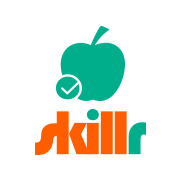Description

eschool

Study Island
Comprehensive Overview: eschool vs Study Island
eSchool
a) Primary Functions and Target Markets:
- Primary Functions: eSchool is a comprehensive student information system (SIS) that helps automate school processes and manage student data effectively. It includes features like attendance tracking, gradebook management, scheduling, parent and student portals, and reporting tools.
- Target Markets: eSchool typically targets K-12 educational institutions, including public, charter, and private schools. The system is designed to assist school administrators, teachers, and district-level officials in handling administrative tasks more efficiently.
b) Market Share and User Base:
- Market Share: eSchool competes with other SIS systems in the education technology market. Its market share is influenced by factors like ease of use, pricing, and the specific requirements of school districts.
- User Base: While specific numbers can be hard to ascertain, eSchool is widely used across various districts in the United States, often chosen for its comprehensive features that benefit larger school systems with complex administrative needs.
c) Key Differentiating Factors:
- Customizability: eSchool is known for its flexibility and ability to be customized to meet the specific needs of school districts.
- Integration: It offers strong integration capabilities with other educational technologies, including Learning Management Systems (LMS) and other educational software.
- Data Management: Robust reporting and data analytics features provide insights into student performance and administrative efficiencies.
Study Island
a) Primary Functions and Target Markets:
- Primary Functions: Study Island is an online platform designed to help students master state-specific, grade-level academic standards. It offers practice questions, assessments, and instructional content across a variety of subjects. The platform is frequently used for test preparation, formative assessments, and skill reinforcement.
- Target Markets: The primary users are K-12 schools, teachers, and students across the United States. It is particularly popular in states with rigorous standardized testing requirements.
b) Market Share and User Base:
- Market Share: Study Island is a well-known player in the online educational resources market. It competes with other platforms offering similar test preparation and practice tools.
- User Base: Study Island tends to have a broad user base, encompassing individual students, teachers, and school districts. It is popular for its alignment with state standards and curriculum requirements.
c) Key Differentiating Factors:
- Standards Alignment: Study Island is specifically designed to align with state standards, making it highly relevant for standardized test preparation.
- Interactive Content: It offers engaging and interactive content, such as games and quizzes, to motivate students and make learning more enjoyable.
- Ease of Use: Study Island is known for being user-friendly, allowing teachers to easily assign and track assignments and students to practice independently or in group settings.
Comparing eSchool and Study Island
Market Position:
- eSchool primarily serves administrative needs whereas Study Island focuses on instructional support and student learning.
- The markets do intersect at K-12 educational institutions but cater to different functions within those environments.
Differentiation:
- Core Functionality: eSchool is focused on data management and school administration, while Study Island is centered around student learning and academic performance.
- Integration and Usage: eSchool integrates with school operations, while Study Island integrates more directly into classroom activities and student use.
Overall, both products play unique roles within the educational system, with eSchool supporting the administrative backbone and Study Island enhancing instructional delivery and student performance metrics.
Contact Info

Year founded :
2021
Not Available
Not Available
Algeria
Not Available

Year founded :
2000
Not Available
Not Available
Not Available
http://www.linkedin.com/company/study-island
Feature Similarity Breakdown: eschool, Study Island
As of my last update in October 2023, eSchool and Study Island are educational platforms with distinct goals and features. Below is a breakdown of their similarities and differences:
a) Core Features in Common:
-
Assessment Tools:
- Both platforms offer tools for evaluating student performance through quizzes, tests, and other assessment formats. They aim to provide insights into student learning and mastery of subjects.
-
Progress Tracking:
- Each platform includes features for tracking student progress over time. This helps educators tailor instruction and provides feedback to students.
-
Educational Content:
- Both provide a repository of educational content that aligns with curriculum standards. This content is often organized by grade level and subject area.
-
Customizable Learning Experiences:
- Educators can customize assignments and adjust learning paths to meet the needs of individual students.
-
Data Analytics:
- Both platforms offer analytics tools for teachers to analyze class performance and individual student data to inform instruction.
b) User Interface Comparison:
-
eSchool:
- Typically, eSchool platforms have a more administrative-focused interface, designed for school-wide management—handling student information systems, schedules, and communications. It may not be as visually engaging but is functional for managing educational logistics.
-
Study Island:
- Study Island is designed with a more student-centric approach, often featuring a more interactive and engaging user interface. It includes gamified elements to motivate students, such as earning badges or rewards for achieving certain goals.
c) Unique Features:
-
Unique to eSchool:
- Comprehensive Administrative Features:
- eSchool often includes broader school management functionalities like attendance records, report cards, teacher portals, and parent communication tools.
- Integration with Other School Systems:
- It may offer integrations with other systems used by schools, such as those for bus routing, cafeteria management, or library systems.
- Comprehensive Administrative Features:
-
Unique to Study Island:
- Standards Mastery and Test Preparation:
- Study Island is particularly focused on standards mastery and preparation for standardized tests. It provides practice aligned to state and national standards, with a strong emphasis on preparation tools for these assessments.
- Game-Based Learning:
- The platform is known for incorporating game-like elements to increase student engagement, which is less common in broader school management systems like eSchool.
- Instant Feedback Mechanism:
- Students receive immediate feedback on their answers, which helps in reinforcing learning and correcting misunderstandings quickly.
- Standards Mastery and Test Preparation:
In summary, while both eSchool and Study Island share some common educational features, they serve different primary purposes which are reflected in their unique functionalities and user interfaces.
Features

Not Available

Not Available
Best Fit Use Cases: eschool, Study Island
eSchool and Study Island are educational platforms designed to enhance learning experiences and outcomes, but they cater to different needs and use cases within the education sector. Here's a description of the best fit use cases for each:
eSchool:
a) Best Fit for eSchool:
- K-12 School Districts: eSchool is an excellent choice for entire school districts looking to implement a comprehensive student information system (SIS). It is designed to handle the complexities of student data management on a large scale, making it suitable for public school systems and charter schools.
- Private Schools: These institutions can benefit from eSchool due to its ability to streamline administrative tasks and improve communication between students, parents, and teachers.
- International Schools: Its robust features for managing diverse curriculums and languages make it an ideal choice for international schools operating in various countries.
- Large Educational Institutions: With its ability to handle extensive data and integrate various educational processes, it suits larger organizations needing a centralized system to track student performance, attendance, and other critical administrative tasks.
d) Industry Verticals and Company Sizes:
- Educational Institutions: Primarily, eSchool caters to the education industry, including public and private K-12 schools. It is scalable to accommodate both small private schools and large public school districts.
- Government-related Education Entities: eSchool's data management capabilities make it suitable for governmental educational bodies that require compliance with regional administrative policies.
Study Island:
b) Preferred Use Scenarios for Study Island:
- Test Preparation: Study Island excels in offering standards-based practice and assessment tools, making it ideal for schools focusing on preparing students for standardized tests like state assessments and exit exams.
- Skill Reinforcement: It is a choice platform for educators looking to reinforce classroom learning with extra practice in key subject areas such as math, science, language arts, and social studies.
- Remote Learning Support: Study Island can be effectively used to support remote and hybrid learning environments, providing students with online access to practice materials and assessments.
- Individualized Learning Plans: Schools that prioritize differentiated instruction can leverage Study Island's adaptive learning technology to tailor assignments and assessments to individual student needs.
d) Industry Verticals and Company Sizes:
- K-12 Educational Sector: Study Island is explicitly designed for use in elementary, middle, and high schools. Its focus on aligning with state standards makes it highly relevant to the K-12 sector.
- Tutoring Centers: Educational businesses that offer supplemental learning and tutoring can also utilize Study Island to provide practice and evaluation for their students.
- Medium-size to Large Educational Groups: It's particularly beneficial for educational settings with a clear focus on student achievement and performance tracking across diverse student groups.
Both eSchool and Study Island serve distinct yet complementary roles within the education sector, catering to different needs from administrative efficiency to focused academic enhancement.
Pricing

Pricing Not Available

Pricing Not Available
Metrics History
Metrics History
Comparing teamSize across companies
Conclusion & Final Verdict: eschool vs Study Island
When comparing eSchool and Study Island, it’s important to evaluate their features, usability, cost-effectiveness, and suitability for different educational needs in order to determine which product offers the best overall value. Here's an analysis based on these criteria:
a) Best Overall Value
eSchool is generally aimed at broader educational administration and management, offering a comprehensive suite of tools for course management, communication, scheduling, and administrative functions. It is best suited for schools or districts looking for a powerful, integrated platform to manage a wide range of academic and operational activities.
Study Island, on the other hand, is focused more specifically on online learning and assessment. It is designed to help students master state-specific, standards-based content and improve their performance through practice exercises, assessments, and real-time feedback.
Considering all factors, the best overall value depends largely on the specific needs of the user. For schools needing extensive administrative capabilities and student information management, eSchool would offer the best value. Conversely, for schools or educators focusing on enhancing student learning outcomes and test preparation, Study Island could be more valuable.
b) Pros and Cons
eSchool Pros:
- Comprehensive administrative and academic management tools.
- Facilitates communication between teachers, students, and parents.
- Integrated platform for managing scheduling, grades, and student records.
eSchool Cons:
- Potentially higher cost due to extensive functionalities.
- Can be complex to set up and may require significant training.
- More suited for entire school or district implementations rather than individual classrooms.
Study Island Pros:
- Focused on improving student performance with engaging, standards-aligned content.
- Offers practice exercises and real-time progress tracking.
- User-friendly interface with minimal setup time required.
Study Island Cons:
- Primarily focused on assessments and test preparation, with less emphasis on broader educational management.
- May require supplementary tools for complete school management.
- Subscription costs can accumulate, especially in larger implementations.
c) Recommendations
-
For Broad Administrative Needs: If the primary requirement is managing comprehensive school operations (like attendance, schedules, grading, etc.), users should lean towards eSchool for its robust administrative features.
-
For Enhanced Academic Outputs: If the goal is to directly enhance student learning and assessment outcomes, particularly in alignment with educational standards, Study Island is the more appropriate choice.
-
Budget Considerations: Users with budget constraints should weigh the specific benefits they require versus the available features. Study Island can be more cost-effective for specific classroom settings, whereas eSchool offers value when deployed at scale across entire schools or districts.
-
Integration Needs: If there is a need to integrate existing systems with a new solution, consider the compatibility and integration capabilities of both platforms with current technologies.
In summary, the decision should be aligned with the institution's goals, whether they pertain to administrative efficiency or educational excellence. Both platforms offer unique strengths that cater to different aspects of school management and student development.
Add to compare
Add similar companies



